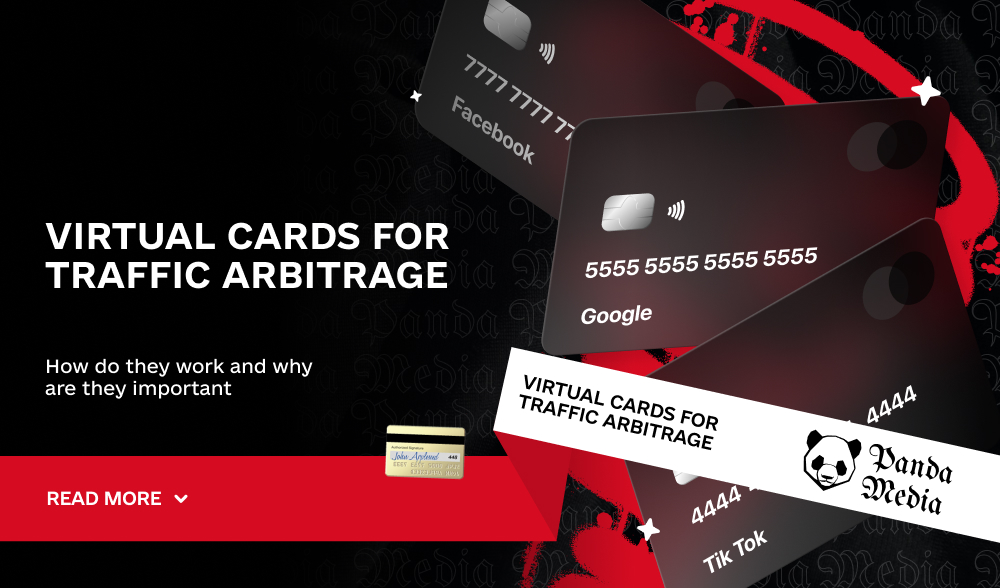Traffic arbitrage is an exciting but complex area of online business. The essence of arbitrage is to buy traffic at one price and sell it at a higher price, making money on the difference. To make this scheme work, you need not only skills and experience, but also the right tools. One of these tools is virtual cards. Today, I will tell you what they are, what their advantages are, and how they can help in traffic arbitrage.
What are virtual cards?
Virtual cards are essentially digital analogs of your regular plastic cards. They have everything you need for online payments: a number, expiration date, and CVV code. The main difference is that you don’t hold them in your hands – they exist only in electronic form. Virtual cards can be quickly created through online banking or specialized applications.
🎁 Bonus: Get 5 free virtual cards from FlexCard (a service with virtual cards for traffic arbitrage and payment for personal purchases) with a promo code PandaMedia. 🧨 Sign up via link, enter the support promo code and get the cards for free
Why are virtual cards useful for arbitrage specialists?
- Anonymity and security. When working with different advertising networks and affiliate programs, it is important to maintain confidentiality. With virtual cards, you can make payments without disclosing personal information.
- Expense control. Set spending limits, which is very convenient for managing the budget of advertising campaigns. It helps to stay within the planned expenses and avoid unpleasant surprises.
- A variety of currencies. Working in international markets often requires payment in different currencies. Virtual cards allow you to avoid additional conversion costs.
- Fast and convenient. Virtual cards can be created instantly. This is especially useful when you need to launch a new campaign or replenish your balance in a hurry.
Disadvantages of virtual cards
- Limitations in use. Unfortunately, not all platforms accept virtual cards yet, which can cause difficulties when launching advertising campaigns.
- Commissions and fees. The use of virtual cards is sometimes subject to additional fees. It is important to take these costs into account when calculating your budget.
- Expiration date. Virtual cards have a limited validity period, after which they need to be replaced. This requires additional attention.
How to use virtual cards in traffic arbitration?
- Registration and top-up in advertising networks. With the help of virtual cards, you can quickly register on various platforms and top up your balance to launch campaigns.
- Payment for services. Virtual cards are convenient for paying for tools that help in arbitrage, such as trackers, split testers, and proxy services.
- Budget control. By setting limits on virtual cards, you can clearly control the costs of each campaign.
- Recieving payments from affiliate programs. Virtual cards are used to receive payments, which makes the process more convenient and secure.
Conclusion
Virtual cards are a really useful tool for traffic arbitrageurs. They help to ensure security, manage budgets, and work on international markets. Of course, they have their drawbacks, such as commissions and usage restrictions, but competent management can minimize these risks. As a result, virtual cards will greatly simplify and improve your work in traffic arbitrage.
